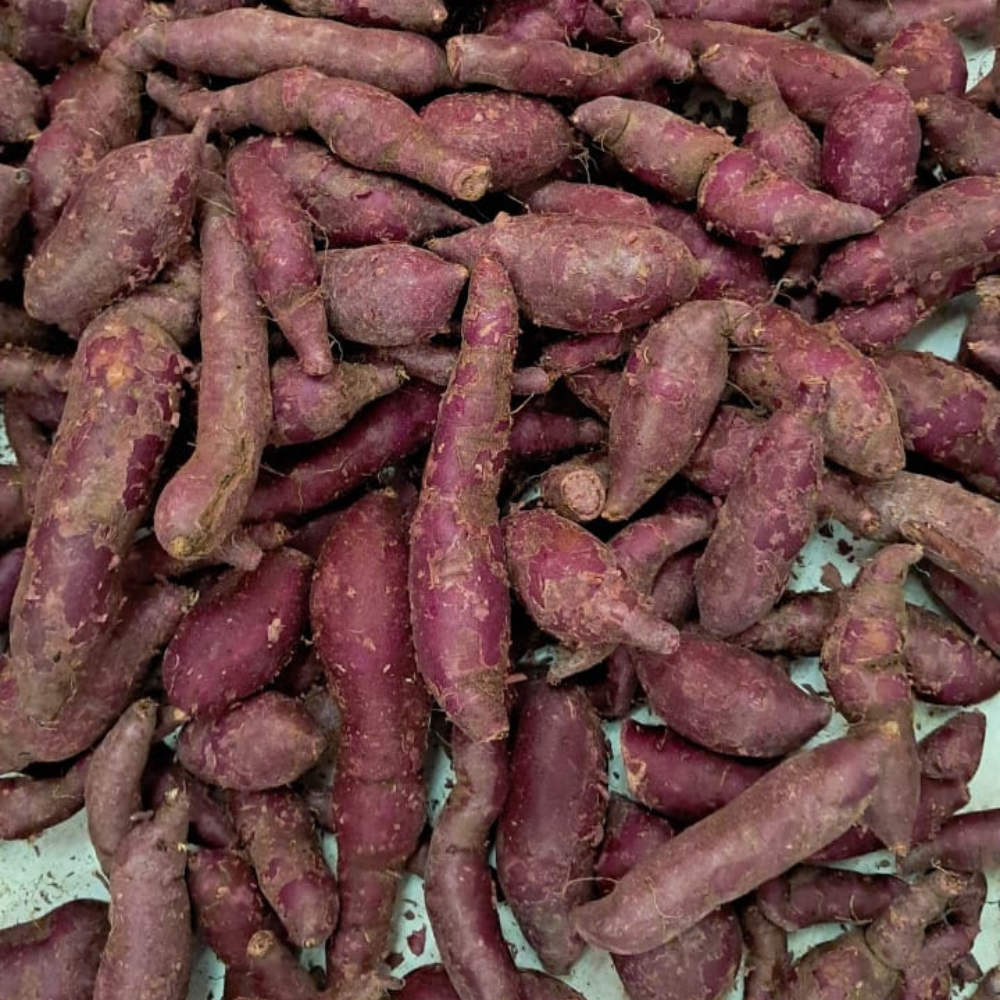- Stories from the Field
by Nitu Singh
Jharkhand

Sweet potato has been an unsung superfood for quite some time now. Packed with vitamins, minerals, and fiber, sweet potatoes offer a unique blend of health benefits. This climate-resilient crop has been making ripples in the farming landscape across India. Recognizing its immense nutritional value, TRI has embarked on the ground-breaking initiative of introducing biofortified sweet potatoes in the Gola and Dulmi blocks of Ramgarh district in Jharkhand.
TRI, being solution designers for regenerative development, pursues a multidimensional approach where local communities actively participate in the decision-making process and ensure that they remain involved as important stakeholders. This is exactly what TRI is doing on the ground in Jharkhand, where the biofortified sweet potato project is being spearheaded by 1000 women-headed households across 100 acres of rain-fed area with the help of several Self-Help groups (SHGs), Village Organizations (VOs), Farmer Producer Groups (FPOs). This transformative endeavor aims to improve nutrition outcomes and income for rural households by employing two varieties of sweet potatoes—orange fleshed (Bhusona) and purple fleshed (Bhukrishna). Not just that, these sweet potatoes will be made into different products like chips and noodles by these women, instilling an entrepreneurial spirit in them.
To make this project a success, TRI, in collaboration with the National Bank of Agriculture and Rural Development (NABARD), partnered with the ICAR-Central Tuber Crops Research Institute (CTCRI) to impart training on the biofortified sweet potatoes. A training cum exposure visit was also organized for the farmers at CTCRI’s regional center in Bhubaneswar, Odisha. TRI has also partnered with Kalinga Institute of Industrial Technology (KIIT University) to impart entrepreneurial training to the farmers and Mati Farms Pvt. Ltd. to ensure market access for the farmers.
Sweet potato cultivation has huge social and economic gains, creating a transformative impact on communities. TRI’s initiative in biofortified sweet potato cultivation has shown promising results in Gola and Dulmi blocks, promoting gender integration and economic empowerment of women farmers. TRI envisions scaling up the project to three additional blocks—Bero, Kurdeg, and Kersai in Jharkhand. TRI’s Thoughtful Tarraki strategy, which is a multidimensional, community-first approach, aims at transforming languishing localities into flourishing communities. With this sweet potato initiative, TRI aims to do just that in Jharkhand, where it is promoting sustainable agricultural practices, positively impacting both nutrition outcomes and livelihoods.
Chaipati Devi, a member of Durga Mahila Mandal SHG in Gola block, says, “I have been cultivating sweet potatoes for years, but this year I decided to cultivate the orange fleshed variety of sweet potato. I was really surprised when I got a yield of 1126 kg. I was able to sell it in the market and also give some to my neighbors and relatives. Seeing how profitable it is, I will surely cultivate this variety again.”
agriculturefarmers
Reach us at
TRI Square,
43 Community Centre Zamrudpur,
Kailash Colony Extension,
Behind Hanuman Mandir,
New Delhi,
Delhi 110048
+91 11 43068096